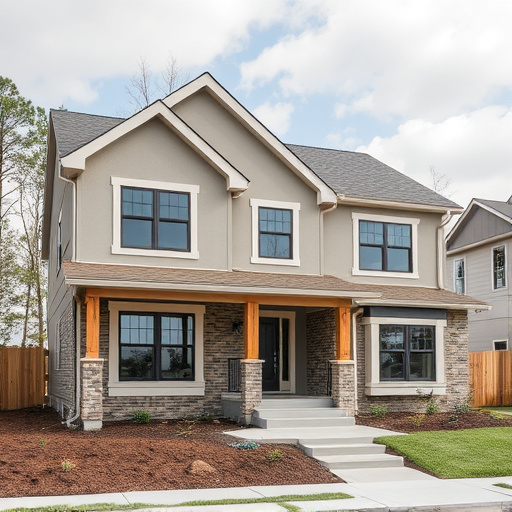Remodeling contractors assess project scope, including size, complexity, material availability, and potential challenges, to create realistic deadlines. They break down dynamic transformations into manageable tasks, identify bottlenecks, allocate resources efficiently, coordinate trades, track progress, manage dependencies, and refine plans based on real-world data gathered during construction. Adaptability is crucial, allowing them to navigate changes, manage client expectations, accommodate design shifts, material delays, or site challenges without compromising schedules, ensuring timely delivery of kitchen and bath renovations.
Remodeling contractors play a pivotal role in ensuring construction projects are completed on time. Effective management of timelines is crucial for successful renovations, fostering client satisfaction. This article delves into the strategies employed by these professionals to navigate the complexities of project scope assessment and deadline setting. We explore the creation of detailed construction schedules, emphasizing adaptability to changes while meeting client expectations. Discover how remodeling contractors efficiently manage their time, ensuring projects stay on track without compromising quality.
- Assessing Project Scope and Setting Realistic Deadlines
- Developing Detailed Construction Schedules
- Adapting to Changes and Meeting Client Expectations
Assessing Project Scope and Setting Realistic Deadlines

Before diving into any construction project, remodeling contractors meticulously assess the scope of work to ensure they set realistic deadlines. This process involves a detailed analysis of every aspect of the project, from the size and complexity of the renovation or addition to the availability of materials and potential unforeseen challenges. For instance, a kitchen remodel often requires coordinating multiple tasks—from plumbing and electrical work to cabinet installation and flooring—and understanding each stage’s duration allows contractors to create a feasible timeline.
By assessing the project scope, contractors can allocate resources efficiently, schedule tradespeople accordingly, and manage client expectations. This strategic approach ensures that even complex projects like home additions are completed within set deadlines. Moreover, it enables them to adapt quickly if any adjustments become necessary, ensuring every stage of the construction process flows smoothly without compromising quality or safety standards.
Developing Detailed Construction Schedules

A key aspect of successful project management for any remodeling contractor is creating detailed construction schedules. These meticulously planned timelines are crucial for ensuring smooth operations and meeting client expectations, especially in dynamic home transformations. By breaking down the entire process into manageable tasks, from initial interior painting to the final touches on kitchen and bath renovations, contractors can identify potential bottlenecks and allocate resources efficiently.
A well-structured schedule allows for better coordination among various trades involved in a project. It enables the contractor to track progress, manage dependencies, and communicate effectively with clients. Regular updates based on real-world data gathered during construction further refine these schedules, ensuring that even the most ambitious home transformations are completed within the agreed-upon timeframe.
Adapting to Changes and Meeting Client Expectations

In the dynamic world of remodeling, where projects often involve complex transformations, adaptability is key. Remodeling contractors excel in managing construction timelines by effectively navigating changes, which are inevitable in any renovation process. When a client envisions a bathroom remodel or wishes to redesign functional spaces like kitchens and baths, they must be prepared for adjustments along the way. A skilled contractor understands this and fosters open communication with clients, ensuring expectations remain realistic. By embracing flexibility, they can accommodate design shifts, material delays, or unanticipated site challenges without compromising the overall schedule.
This adaptability is crucial in delivering projects on time, especially when dealing with intricate kitchen and bath renovations. Remodeling contractors expertly balance client wishes with practical considerations, making necessary adjustments to stay on track. They employ agile project management strategies, allowing for quick responses to changes, ensuring that even unexpected events don’t significantly delay the transformation of these essential spaces.
Remodeling contractors excel at managing construction timelines through a combination of thorough project scoping, realistic deadline setting, and meticulous schedule creation. By adaptably addressing changes and consistently meeting client expectations, they ensure projects stay on track, demonstrating their expertise as key players in the successful completion of any remodeling endeavor. When selecting a contractor, look for those who prioritize these essential practices to achieve timely and satisfying remodel results.














